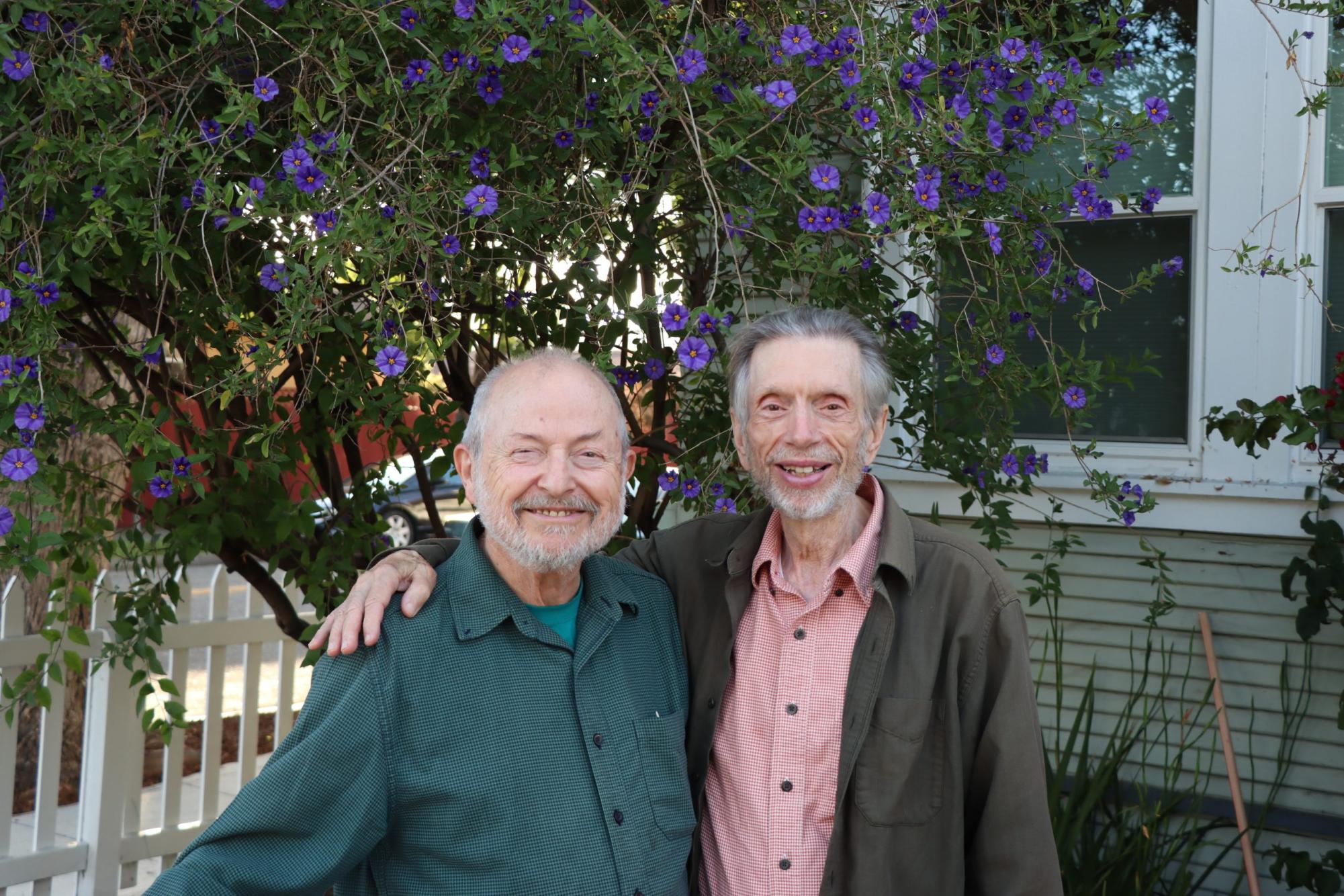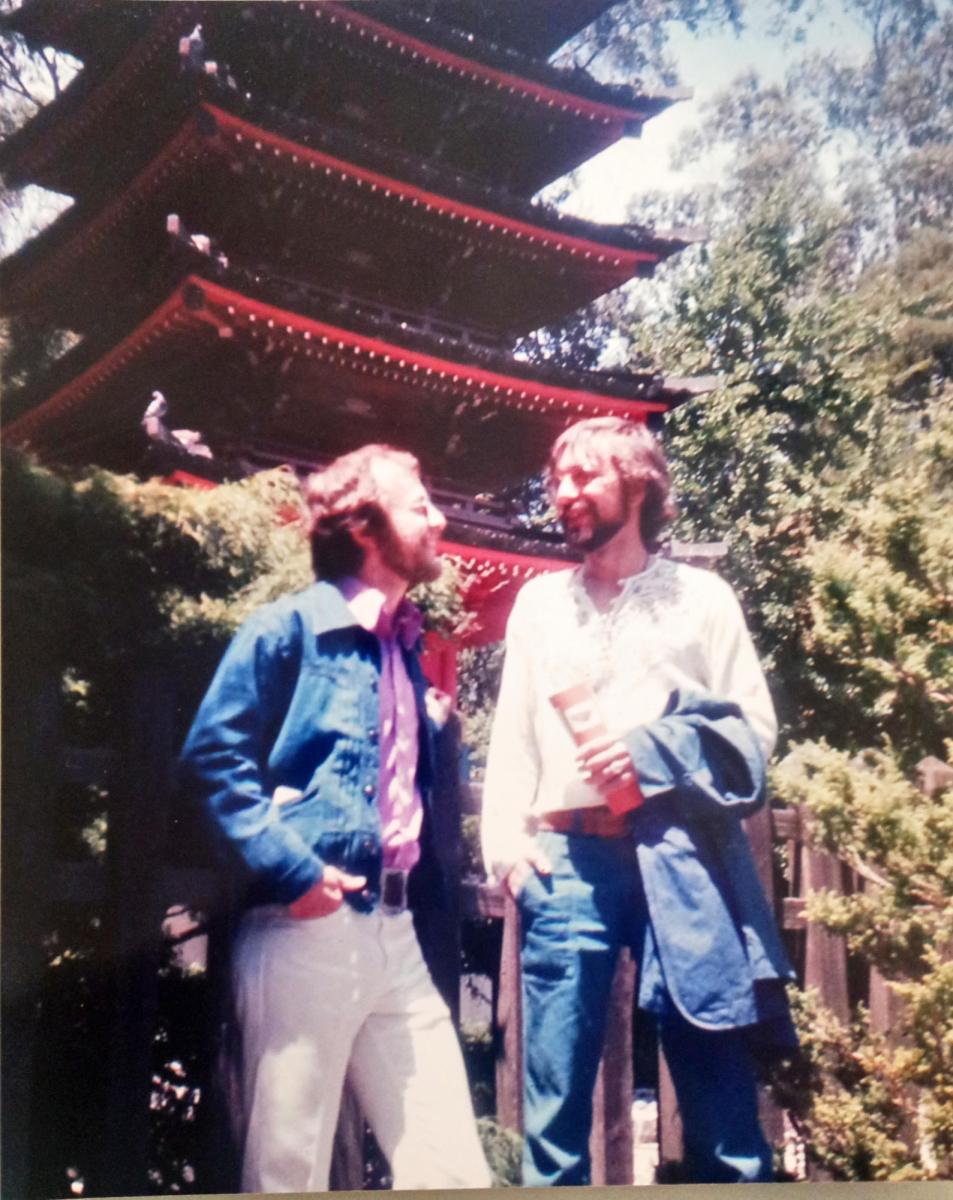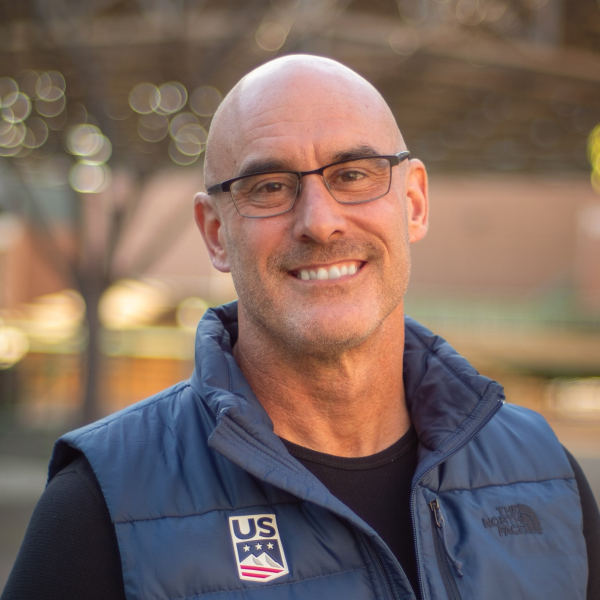The Peralta Community College District (PCCD) Board of Trustees was once the political home of a groundbreaking local gay politician, Tom Brougham. Brougham, 80, worked for the City of Berkeley until his 2004 retirement, and served as a PCCD trustee between 1986-2000. He and his husband Barry Warren, with whom he has shared his life since 1975, currently enjoy their retirement in their modest home in Albany, surrounded by books, photographs, and Warren’s talents as a musician.

Against the backdrop of PCCD’s year-long search for a new chancellor, The Citizen engaged Brougham in two interviews conducted in June and September 2023 to highlight his political career, his service to PCCD, and to seek his opinions on the current state of the District, including the search for a new chancellor. The PCCD Board of Trustees is set to deliberate on the finalists for chancellor on Monday.
Roots of a gay activist and politician
The Citizen asked Brougham about his history of LGBTQ activism. He described his teenage years and 20s as “rough.”
“There was no gay movement,“ Brougham said. “And so when gay liberation came along [in the 1970s], I was just ready for it. […] I had very little gay experience, very little social interaction with people. And suddenly there’s political action! […] It was sort of like an ‘on’ switch.’”

His activism focused on electoral politics and social change in and around Berkeley. His network of LGBTQ activists maintained phone and mail lists, circulated endorsements and suggestions for candidates and ballot initiatives, and spoke about the gay community and civil rights in local high schools.
His job in the City of Berkeley was processing parking tickets. Being embedded in both the LGBTQ community and the municipal workforce provided valuable experience for what would become very high-profile and impactful advocacy of Domestic Partnership workplace benefits for City of Berkeley employees.
Berkeley’s policy, enacted in December 1984, allowed same sex couples to register legally as “domestic partners” and treated these as legally equivalent to marriages for employee benefits like health care, retirement pensions, and survivor benefits. Berkeley’s policy was the first of its kind in California. It served as a model for similar legislation throughout the United States.
It also helped pave the way for full marriage equality. Same-sex marriage was first legalized nationwide by the US Supreme Court in its 2015 Obergefell v. Hodges decision, and given legislative protection (alongside interracial marriages) by the 117th Congress in the Respect for Marriage Act, signed by President Biden in December 2022.
For Brougham, the moral dimension of LGBTQ equality was only part of the fight. He recalled to The Citizen that domestic partnership advocacy required persuading Berkeley’s politicians, employee unions, and benefits that adding unmarried domestic partners to employee benefit plans would not negatively impact anyone’s financial bottom line.
Essentially, he argued from a legal and economic perspective that LGBTQ households were as stable as heterosexual marriage–or in the terms Brougham used in his advocacy, “predictable.”
His granular knowledge of health and pension economics, and the alliances he built were key to achieving this important early milestone in equal rights for LGBTQ persons.
His success prompted his friend and then-PCCD trustee Darryl Carter to recruit him to run for the trustee seat representing Berkeley-Emeryville-North Oakland-Albany. In the April 1986 election, he defeated the incumbent, and made history as the East Bay’s first openly gay elected official.
The challenges of Peralta governance
Brougham served on the Board of Trustees until 2000. During these years, he and his colleagues led the PCCD through a near-fatal financial crisis, a Chancellor’s search, and multiple controversial proposals to stabilize PCCD’s long-term financial outlook and educational mission. The Laney Tower covered these events in detail.
Two significant stories from this period highlight what Brougham recalled were “hard decisions” that he and the trustees confronted during this time: the tenure and resignation of Chancellor Robert Scannell (1989-1995), and the status of Berkeley-based Vista College, which became Berkeley City College in 2006.
Brougham recalled that hiring Scannell in 1989 “was a big deal.” Scannell had previously led the Pennsylvania State University system. There were high hopes for his leadership. Among his early successes was PCCD’s 1990 early repayment of a $3.1 million bailout loan from the State of California that rescued PCCD from financial receivership. This boosted Scannell’s reputation within PCCD.
Unfortunately, Scannell soon confronted what Brougham believes are underlying political and financial dysfunctions in the PCCD. Scannell had asked the trustees to consider several drastic proposals to stabilize PCCD’s perennially troubled finances. These included the sale of “surplus land” on the Laney campus to Kaiser Permanente, consolidating the number of Peralta colleges to as few as two or one, and shrinking the size of PCCD’s administration.
The Citizen’s analysis of contemporaneous Tower reporting suggests that each proposal encountered fierce resistance. Faculty saw their professional contributions going uncompensated through increased workloads, salary caps, and decreased PCCD contributions to employee benefits. Students saw their opportunities being constrained. And almost everyone considered the Board of Trustees dysfunctional, including Brougham himself.
By March 1995, Scannell had lost the confidence of a majority of trustees, who demanded his resignation. Brougham and one other trustee retained confidence in the chancellor and voted to reject his resignation. Scannell’s resignation nonetheless took effect in July 1995.
Long-simmering tensions in the leadership of PCCD now exploded into public view. The April 21, 1995 Tower edition quoted Scannell addressing protesting Merritt College students: “There is a leadership crisis [at PCCD]. Not because I’m leaving but because we took upon ourselves the task of making sweeping changes and then postponed making them.”
Reflecting on Scannell’s chancellorship, Brougham told The Citizen, “Scannell basically went down the tubes because he simply said ‘no’ to fiscally unsound policies. He could see ahead. […] It wasn’t that Scannell wanted to do one particular thing. It’s that he wanted the whole thing to work.”
Not long after Scannell’s resignation, disagreements over the status of Vista College in Berkeley would come to dominate trustee politics.
In the early 1990s, Vista rented an office building in downtown Berkeley that lacked sufficient classroom space. “It was small,” Brougham recalled. “People were on top of one another. […] People would come in and sit on top of an upturned wastepaper basket.”
Some trustees considered Vista’s lease to be an unsustainable drain on PCCD’s troubled finances. Brougham opposed this view. He argued that Vista’s enrollment and academic programs were strong, and that the college consistently covered its operational expenses, returning a surplus to PCCD. At this time, the other three campuses had operational deficits.
Brougham believed that PCCD should support Vista through Measure B, passed in 1992 in part to maintain and ultimately to purchase land for Vista. He recalled to The Citizen that Scannell had largely agreed with his views on Vista, and that Scannell’s opposition to closing Vista played a significant role in his loss of support among the majority of trustees.
In October 1995 the board voted down a proposal to purchase land for Vista. In January 1996 Brougham proposed “deannexation” of Vista from PCCD. This proposal would have established a new California Community College District based in Berkeley with Vista as the sole campus.
Deannexation had strong support among Broughams’s constituents. The California Community Colleges Board of Governors deemed the plan financially viable. But it was opposed by a majority of trustees, by the Peralta Federation of Teachers, and within PCCD’s Administration. Opponents worried that it would cause the financial collapse of the PCCD. Tower reporting and opinions during this time reflect how the issue bitterly divided students, faculty, administrators, and the trustees themselves.
Ultimately, Vista remained part of PCCD through a complex series of compromises for which Brougham was the primary voice among a resistant Board of Trustees. Voters passed Bond Measure A in November 1996, which included money to purchase a permanent site. Brougham was also re-elected in 1996 despite deannexation opponents having funded a challenger.
Deannexation remained a divisive issue in PCCD throughout 1997-98. Brougham and another trustee continued supporting it until the trustees committed to purchasing land for Vista in 1998.
Brougham acknowledged to The Citizen that the acrimony of deannexation made his continued service as a trustee unpleasant. He declined to run for re-election in 2000.
“That’s why I left,” he recalled. “You do come to [the] realization that you are an issue with some of the people, and you are exhausted. […] So let someone else do it.”
He praised his successor, Daryl Moore, an African-American gay man whom he endorsed in the 2000 election. “It turned out he really was a person who could break the [Vista] logjam,” Brougham said. He credits Moore’s leadership as a trustee with the successful establishment of Berkeley City College in 2006.
Brougham also told The Citizen that the Berkeley City College building is beyond anything he could have imagined. “My expectation at the end of my […] [service] was ‘x’ square feet of new building. And lo and behold, […] it was two times ‘x’!”
Towards a new chancellor
At the conclusion of our September 2023 interview, The Citizen asked Brougham to opine on the PCCD’s current search for a permanent chancellor.
Brougham hopes the trustees will choose someone who articulates a vision of PCCD in 2033. “The brainpower of the institution should be focused on maximizing future educational opportunity,” he said. “It takes a decade to do something.”
Yet Brougham is sanguine on the next chancellor’s chances of success. He thinks that there may still be too many forces working at cross-purposes with each other. “No amount of skill is as important as the willingness of the existing ‘armies’ to stop fighting each other.”
Reflecting on his own experience, he was blunt with The Citizen. When he was first elected, he said he “believed there were solutions” to the District’s many serious challenges. “I’m a goody two-shoes,” he said. “I really do believe in discussion and thought and democracy, […] and [that] you can grope your way up towards something better.”
But the size of PCCD and its myriad challenges give him pause. “The bigger the units that you’re dealing with, the less easy it is to believe that.”
Author’s Note: The Citizen adheres to the Associated Press (AP) Stylebook, 56th Edition (2022), which uses “LGBTQ” to denote the movement for lesbian, gay, bisexual, transgender, and queer rights in its current form. Both AP and The Citizen recognize that the acronym and movement have evolved historically from an original emphasis on lesbian and gay identities towards greater inclusion of bisexual, transgender, and other queer sexual minority identities and a common struggle for equality since at least the 1970s.



























Chris Weidenbach • Oct 31, 2023 at 9:20 am
Thank you for this interview/article, which provides meaningful context about Peralta’s recent past. I urge The Citizen’s student-reporters to consider ‘drilling down’ on what Mr. Brougham refers to as a troubling situation of “too many forces working at cross-purposes with each other.” He even refers to these as “‘armies’”. — This is not a healthy situation! — Some basic questions have gone unanswered for twenty years or so. Brougham himself seems to be quite guarded in the vague way he semi-describes conflicts within the District. — Wouldn’t it be another spectacular achievement by The Citizen if your team were able to somehow describe the rather murky conflicts underpinning Peralta’s dysfunctions? You might build on this interview with a series involving people from various ‘constituencies’ at the Colleges and District administrative center aimed at problem-solving, ethical governance, fiscal responsibility, and better educational service to the people of the East Bay. — I think this generally describes your work, by the way, for which I thank you and applaud you!